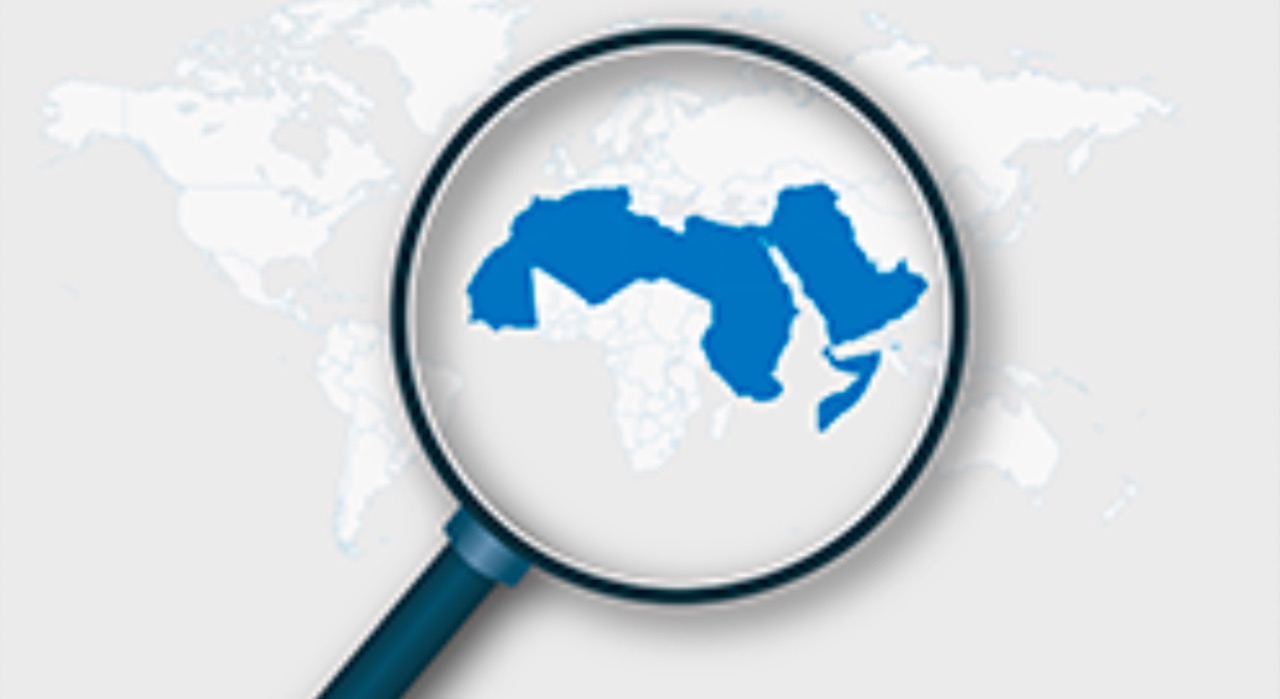
2014 - Social Protection in the Arab World - the Crisis of the State Exposed
2014 - Arab Watch Report - Social Protection in the Arab World- the Crisis of the State Exposed
List of contents
Part 1 : Prefaces
- Social Protection: A Constituent Element of the New Development Model- Ziad Abdel Samad
- Bring the powerful to account- Roberto Bissio
- ILO Reference Paper on Social Protection - Ursula Kulke
- Salaheddine El-Jourchi, Senior Research Coordinator-ANND
Part 2: Thematic Papers
- Reference Paper on Social Protection – Azzam Mahjoub and Mohammed al-Monther Belghith
- Social Protection in the Context of Development Strategies - Adib Nehme
- IMF’s policies and their effect on social protection - Mohammad Said Al-Saadi
- Protection in Neighborhood - Laura Adwan and Iyad Al-Riyahi
- Social Protection in North Africa - Joseph Chakla
Part 3: National Reports about Social Protection Policies
- Jordan
- Tunisia
- Algeria
- Palestine
- Lebanon
- Morocco
- Egypt
- Bahrain (Available only in Arabic)
- Sudan (Available only in Arabic)
- Iraq (Available only in Arabic)
- Yemen (Available only in Arabic)
- Syria (Available only in Arabic)
- Mauritania (Available only in Arabic)
Part 4: Social Protection in Arab Countries through international Data and indicators
Part 1 : Prefaces
Social Protection: A Constituent Element of the New Development Paradigm
Ziad Abdel Samad, ANND Executive Director
Perhaps
the key role that ANND had aspired to has been the monitoring of
public policies and their accountability, particularly in the
economic and social spheres. The role of civil society organizations
does not stop at working to provide services for those in need,
empowering the poor economically and legally, or coordinating with
government bodies to achieve such tasks. It calls for much more,
especially with the decline in the protective role of the state and the
shrinking capacities and public resources to provide care for
citizens, in parallel with the increased need for welfare, due
to population growth, on one hand, and the impact of sharp
transformations in lifestyles on the level of production and
consumption, on the other hand.
Brief Historical Overview
Since
the 1960s, most Arab states adopted an economic approach
involving the implementation of Structural Adjustment Policies
(SAPs), which entailed shrinking the role of the state through
cuts in public spending, introducing free market mechanisms, and
strengthening the role of the private sector, aiming to increase rates
of economic growth. Promoters of this approach are convinced that
economic growth would lead to generating jobs, thus benefiting society
as a whole. In the mid-1980s, such policies became known as the
Washington Consensus, after the international financial institutions
(IFIs) who are permanently based in Washington DC.
These
measures led to the reduction of the role of the state in providing
public services and strengthened the role of the private sector,
which aimed to make profits from investments. However, to encourage such
investments, several measures were adopted to reduce the burden on
investing companies, such as direct taxes on income, tax breaks,
currency exchange rates, and interest rates, in addition to
reducing the burdens related to providing basic rights for labor. These
measures had a negative impact on economic, social, and cultural
rights of citizens, leading to an increase in mobilizations
calling for the restoration of those rights. In turn, this
led to an escalation in suppressive measures by governments,
aiming to prevent any political transformation, even if it had been the
choice of the citizens. Thus, and after sacrificing economic, social,
and cultural rights, the political system and civil rights began to
shrink; restrictions were imposed on freedom of opinion and expression,
the right to assembly and organizing demonstrations and sit-ins was
curtailed, and the creation of political parties and workers’ unions was
prohibited.
These circumstances multiplies the types of
roles played by emerging civil society organizations in
developing countries, established on the margins of governments
reluctant to provide services and aiming to complement and replace
them. NGOs transformed from being voluntary initiatives by
citizens, mostly charitable, into becoming a broker delivering
basic services to citizens, victims of SAPs, who actually
needed assistance the most.
With the accumulation of needs, the
expanding base of those marginalized by the concentration of wealth, the
breakdown in re-distributive mechanisms, and the absence of parties,
political cur-rents, and oppositional movements for workers demands
due to the repression, CSOs found themselves in the midst of
confronting such tasks imposed by the situation.
They
witnessed a transformation of their role, from partners in service
delivery and absorbing the resentment of the deprived,
marginalized for the sake of social stability and civil peace,
into the role of influencing public policies, particularly in promoting
the establishment of good governance and calling for the adoption of
public policies that answer the needs of citizens. This gradual shift
in role did not merely target decision makers in developing
countries; it extended its reach to IFIs and the states with actual
control and ability to influence their decisions.
UN-sponsored
international processes regarding human development – from the Earth
Summit in Rio (1992) to the Millennium Summit in 2000 –
contributed to creating a space for civil society to
follow-up, monitor, and attempt to influence governmental tracks.
With the spread of Globalization and the increased influence of the
international factor on domestic policies, civil society became
increasingly attentive to international processes. International
networks began emerging in various disciplines and fields,
including those monitoring public policies in the social,
economic, and environmental sectors, which could lead to violating
the basic rights of citizens.
This led to the establishment of
the Social Watch mechanism, which began monitoring policies based
on human rights standards, instead of merely documenting
violations, despite the major and pioneering role played by rights
organizations in their field and during that period. The Arab NGO
Network for Development (ANND) was established in this period
as a framework bringing together human rights, development,
environmental, and women’s organizations to promote Arab
participation in international fora on developmental
processes, in addition to building civil capacities to confront
local policies and governments aiming for more centralization and
defending the interests of a particular segment, which took
advantage of the transformations and was able to influence public
policies and protect its interests.
Arab organizations
contributed to the Social Watch through yearly reports to
monitor social policies, especially in the areas of poverty
and gender equality. Through this mechanism, and in coordination
with ANND, they also contributed to various international conferences
and forums, accumulating experience, until the launch of the Arab Social
Watch in early 2010.
Soon after, popular revolutions
erupted around the Arab world demanding justice, freedom, and a
dignified life. ANND became more convinced of the need to promote
the role of civil society in defending economic and social rights
and the formulation of appropriate policies. To achieve this,
there was a need to generate novel concepts for development,
based on the human rights approach, which are inalienable and
indivisible, in addition to commitment to enforce the fundamental rights
of citizens.
The first report, published in late 2012, analyzed
the right to work and right to education as two interlinked
rights, which appeared to be a priority in the region, especially
for young people. The report concluded that Arab states need to
adopt a new developmental approach, where the states plays a key
and active role in adopting economic choices, formulating general
orientations, and safeguarding citizens’ rights. This developmental
approach is based on the shift from a rentier and service based
economy into a productive economy directed primarily to the local
and regional markets, instead of being designated for export. This is
in addition to adopting wealth redistribution policies and programs
to achieve social justice for citizens.
Based on this
conclusion, ANND started to develop its research capacities and focused
on the constituent elements of the proposed develop-mental
approach, particularly policies related to investment and its
relation with production and manufacturing, distribution policies
through taxation, subsidies in government programs, and the
partnership between the public and private sectors.
This
second report of the Arab Watch on Economic and Social
Rights was produced in this context and as an extension of
these efforts. It focuses on one of the more sensitive
issues, social protection systems as a human right and a
redistribution mechanism, contributing to the achieving a measure
of social justice and social security.
This report contains 13
national reports completed through the commendable efforts of experts
who are committed to defending human rights. They were
prepared using a participatory approach involving partners and
militants and re-viewed by experts and activists. The report also
incorporates research and analysis papers from experts in the regions,
as well as some contributions from other parts of the world.
A
new addition is the scientific section on social protection indicators,
which will allow the use of this report to measure progress and assess
the impact of efforts of civil society organizations, in the aim of
developing social protection policies in the long and winding road
towards social justice.
My unlimited gratitude all those
involved in the report, its authors, reviewers, and editors
and everyone who contributed through discussion and follow-up.
Recent publications
